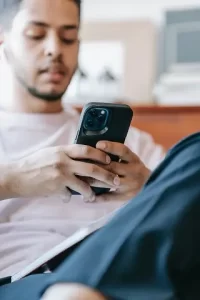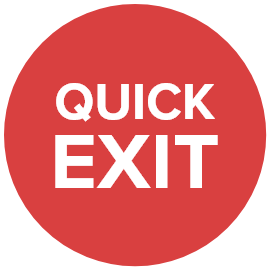Sexual assault can happen to anyone and it is never your fault. You are not alone. Reaching out for support is an extremely brave thing to do. The Sexual Assault Helpline team are specialist counsellors who will always listen and believe you. Call our team for advice and support on 1800 010 120. You can choose to be anonymous.
Call 1800 010 120
Sexual assault is a crime
It has nothing to do with the actions or choices of the person who experienced it and everything to do with a rapist’s choice to use power and control over someone else.
Sexual assault is:
- any unwanted or forced sexual act, including touching or penetrating
- feeling scared, intimated or coerced into a sexual act
- any sexual act toward a person under the age of 16
- any sexual act toward a person who cannot give consent due to the effects of alcohol or drugs, being unconscious or asleep
- removing a condom without consent
- sharing intimate images without consent
Who can call
Any person who lives in Queensland who has been impacted or knows someone who has been affected by sexual assault can call our Sexual Assault Helpline. It doesn’t matter whether your experience was from decades ago, more recently or if you’re currently experiencing abuse, you can call us for support.
How we help
We listen and believe you and support you first with any concerns you have around your safety. We then give you options depending on your situation and what you want to happen. Options can look like information, advice or counselling over the phone. We can also make referrals to other services if you would like ongoing support such as psychological support.
Please call us if:
- you have been sexually assaulted or sexually abused and are unsure what to do next, or just need to talk.
- you are unsure if what you have experienced is sexual assault or sexual abuse.
- you are worried that someone you know may have experienced or is experiencing sexual assault or sexual abuse.
You are not alone and we can help you. Our Counsellors will support you while you to decide what to do next. They will listen to you and provide you with options.
Call 1800 010 120
Available 7:30am – 11:30pm, 7 days.
Reporting sexual assault
Our specialist experienced counsellors will listen and believe you. They will support you while you decide what to do next which could include reporting the sexual assault if this is what you want to do.
Reporting the crime
In Queensland, there are two ways you can report the crime to Police if this is what you are wanting to do:
1. Formally reporting the crime
If you wish to make a formal report to Police in person, the Police will investigate what happened to you.
If the assault occurred within 72 hours, try to avoid showering or disposing of clothing that you were wearing during the attack so that a forensic examination can occur and evidence can be collected for the Police investigation.
2. Reporting the crime anonymously
If you wish to report what happened to you anonymously, the Police will not proceed with an investigation but your report may be of assistance to the Police in investigating other crimes. Find out more about the Queensland Police Service Alternative Report Option for making an anonymous report here.
The choice is up to you in whether you make a formal report, an anonymous report or no report to Police. Just know that when you are ready to speak to someone, you can call the Sexual Assault Helpline on 1800 010 120 to help you decide what to do next or to talk about what you’re going through.
The person who hurt you
Sexual assault can happen to anyone and it is never your fault. A rapist chooses to use sexual violence and abuse and there is nothing you could have done to prevent it.
People who use sexual violence can be:
- Partners including, boyfriends, girlfriends, husbands or wives
- Exes including, ex-boyfriends, ex-girlfriends, ex-partners, ex-husbands or ex-wives
- Carers or paid support workers
- Parents, guardians or other family members
- Casual sex partners
- Friends
- Other people you live with or see often, whether inside or outside the home
- Someone you know but aren’t close to, like a neighbour, boss, or friend of a friend
- Strangers
Sexual assault is never okay or excusable and it is everyone’s responsibility to understand consent and practice it. Consent is easy. To speak with someone about your experience, call our Sexual Assault Helpline on 1800 010 120. You can choose to be anonymous.
How you might feel
Sexual assault can happen to anyone and often adults and young people can feel a range of emotions. Everyone responds differently and there is no right or wrong way to feel after a sexual assault or sexual abuse.
You may feel:
- Startled or on high alert
- Numb
- Angry
- Upset
- Unclean
- Alone
- Unsafe
- Like you can’t trust people anymore
You may experience:
- Restlessness or have difficulty sleeping
- Headaches, nausea, dizziness or memory loss
- Fidgeting or struggle to concentrate
- A blank or racing mind
- Flashbacks
The Sexual Assault Helpline team can reassure you that feeling any of the things listed above is completely normal after experiencing sexual assault. We are here to talk when you are ready.
Consent is easy
It is everyone’s responsibility to understand consent and practice it. Consent is more than a once-off ‘yes’ or ‘no’. You are allowed to withdraw your consent and just because you have consented to something in the past, doesn’t mean you have given consent for it to happen again. Consent has to be enthusiastic, freely given and continuously sought.
Watch this short video explaining consent with a simple tea analogy.


